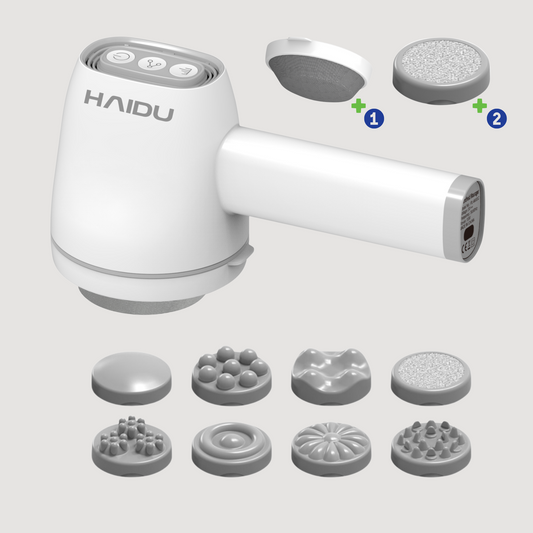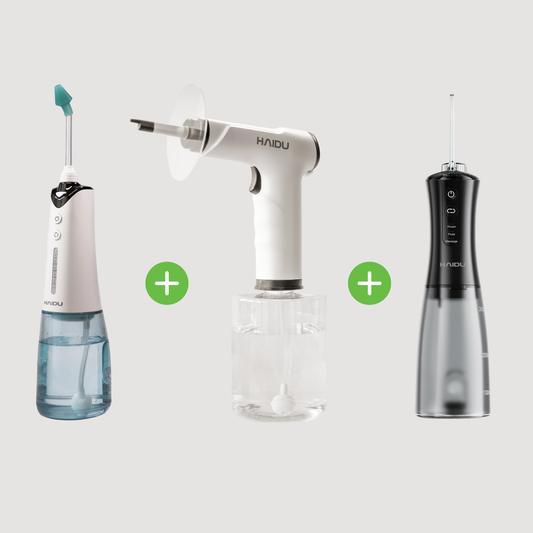Cold hands: Causes and Treatment options
Everyone has experienced cold hands at some point, whether it's due to wintry weather, a long walk in the fresh air, or simply a tendency to have cold hands in general. In this blog, we will delve deeper into the causes of cold hands, when it is most prevalent, additional considerations, and, most importantly, how to address and alleviate the problem.
Causes of cold hands
There are various causes of cold hands, ranging from mild to severe factors. A common cause is exposure to cold temperatures. When body temperature drops, blood vessels in the hands constrict to reduce heat loss, resulting in cold hands.
Additionally, other factors can contribute to the issue, such as poor circulation, stress, smoking, and certain medical conditions like Raynaud's disease, where blood flow to specific parts of the body is restricted.
Seasonal influences
Cold hands often occur in winter when temperatures drop, and the likelihood of exposure to cold air and wind increases. People with conditions like Raynaud's disease may experience cold hands throughout the year, regardless of the season.
Symptoms to watch out for
Experiencing cold hands may be accompanied by various symptoms that further accentuate discomfort. Here are some common symptoms often associated with cold hands:
- Tingling sensation: A common symptom, this tingling sensation in the hands can occur due to reduced blood flow, causing irritation of the nerves.
- Changes in color: The hands may exhibit a noticeable red or purplish-blue color, especially in people with conditions like Raynaud's disease. These color changes often result from the body's response to cold temperatures and blood vessel constriction.
- Burning sensation: Another common feature is experiencing a burning sensation in the skin of the hands. This can be attributed to disrupted blood circulation and the resulting irritation of nerves.
Solutions for cold hands
Fortunately, there are several effective solutions to alleviate cold hands. Here are some suggestions:
- Clothing: Wear warm gloves and ensure the rest of your body is well-covered to minimize heat loss.
- Movement: Keep yourself active to promote blood circulation. Regular exercise can help improve overall circulation.
- Relaxation techniques: Stress management can also play a role. Try relaxation techniques such as yoga or meditation to reduce stress.
- Nutrition: A healthy diet can support blood circulation. Foods rich in omega-3 fatty acids, vitamin B, and iron can be beneficial.
- Electric hand warmers: Electric hand warmers are convenient devices that you can place in your pocket, quickly releasing heat to warm your hands.
- Heated gloves: Special gloves with built-in heating elements are also available, providing prolonged warmth.
- Hot water dispenser: A hot water dispenser can be handy to have warm water for warming your hands.
How nutrition can help against cold hands
Nutrition plays a crucial role in promoting healthy blood circulation and can help alleviate the discomfort of cold hands. Here are some nutrition-related aspects contributing to reducing cold hands:
- Omega-3 fatty acids: Foods such as fatty fish (salmon, mackerel) and flaxseed, rich in omega-3 fatty acids, contribute to maintaining supple blood vessels.
- Vitamin B12-Rich foods: Foods like lean meat, poultry, eggs, and dairy are essential for red blood cell production, supporting blood circulation.
- Iron-Rich foods: Iron, found in foods like legumes, leafy greens, and meat, also plays a key role in oxygen transport and can contribute to reducing cold hands.
A balanced diet with these nutrients can not only promote overall health but also specifically help alleviate the discomfort caused by cold hands. It is advisable to make varied and nutritious food choices and, if necessary, consider supplements to address any deficiencies in specific nutrients.
When to consult a doctor?
In most cases, cold hands are not a cause for serious concern. However, if you regularly experience cold hands, especially in combination with other symptoms such as skin discoloration, pain, tingling, or numbness, it is advisable to consult a doctor. This may indicate an underlying medical condition that requires professional attention.
Cold hands are a common issue that can usually be alleviated with simple measures. By dressing warmly, staying active, reducing stress, and using heating products like electric hand warmers, you can enjoy warm and comfortable hands even on the coldest days of the year. However, do not forget to seek medical help if you experience persistent issues to rule out any underlying health problems.











Leave a comment
All blog comments are checked prior to publishing